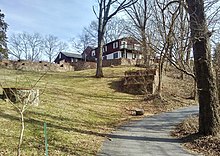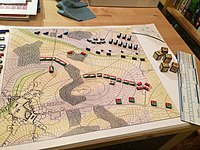Charles S. Roberts | |
|---|---|
| Born | (1930-02-03)February 3, 1930 |
| Died | August 20, 2010(2010-08-20) (aged 80) |
| Resting place | New Cathedral Cemetery |
| Nationality | American |
| Occupation | Game designer |

| Part of a series on |
| Wargames |
|---|
 |
|
Types
|
|
People
|
|
Lists
|
|
Charles Swann Roberts (February 3, 1930 – August 20, 2010, Baltimore, Maryland ) was a wargame designer, railroad historian, and businessman. He is renowned as "The Father of Board Wargaming", having created the first commercially successful modern wargame in 1952 (Tactics), the first wargaming company in 1954 (Avalon Hill), and designed the first board wargame based upon an actual historical battle (Gettysburg). He is also the author of a series of books on railroad history, published by the small publishing firm, Barnard, Roberts, and Company, Inc.